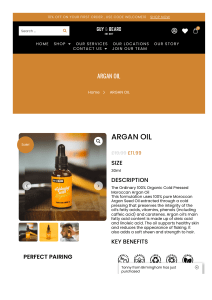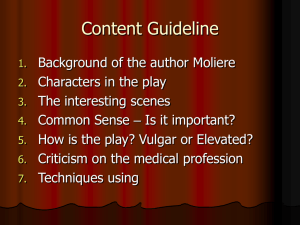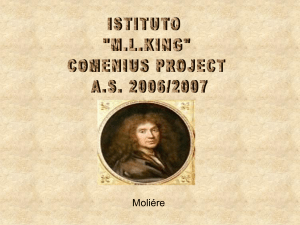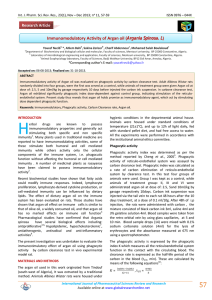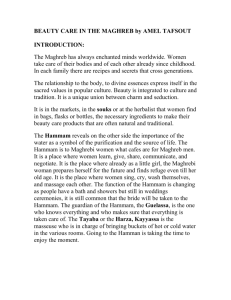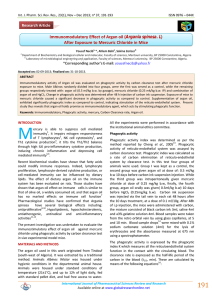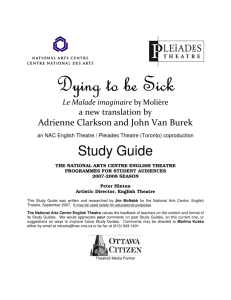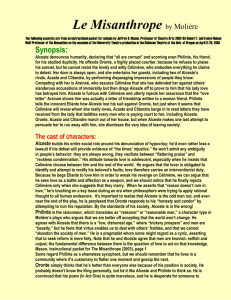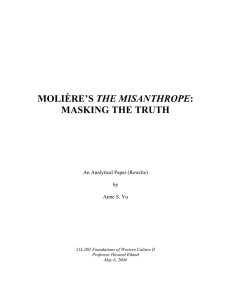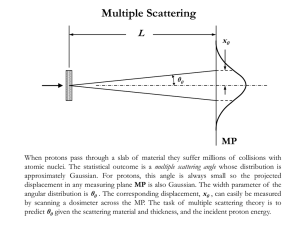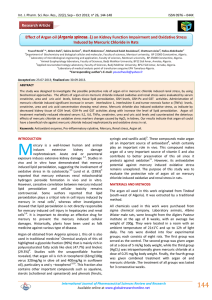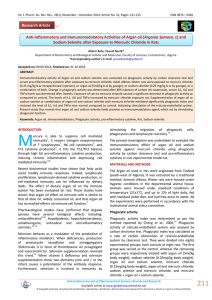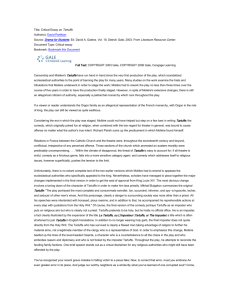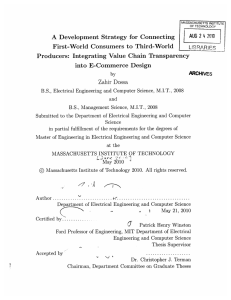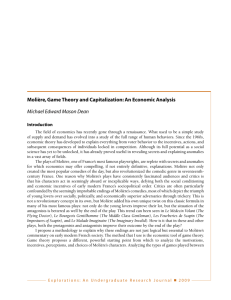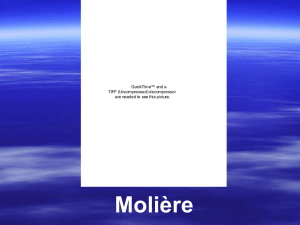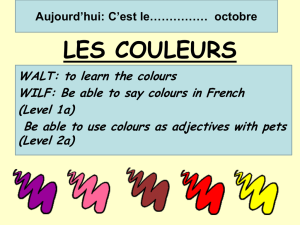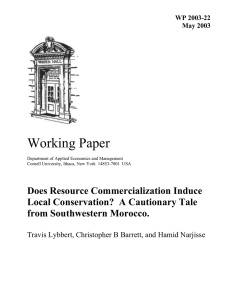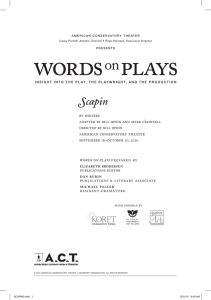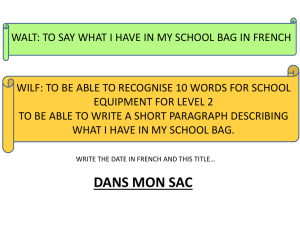Le Malade imaginaire
advertisement
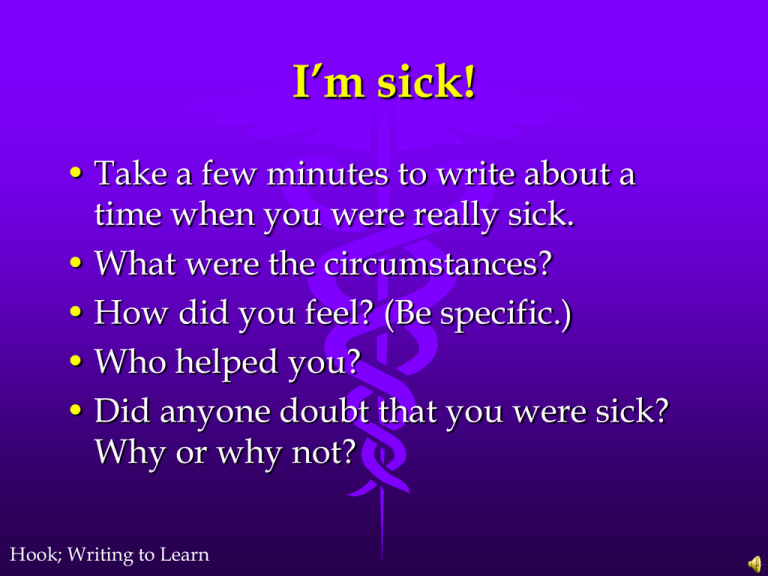
I’m sick! • Take a few minutes to write about a time when you were really sick. • What were the circumstances? • How did you feel? (Be specific.) • Who helped you? • Did anyone doubt that you were sick? Why or why not? Hook; Writing to Learn Agree or Disagree 1. People who are sick often fake their illness. 2. The end justifies the means. 3. Being in love gives people the license to do whatever they want to be together. 4. People hear what they want to hear. Le Malade imaginaire une pièce de Molière (Français II, Chapitre 7) What do you think the title means? • The Imaginary Hypochondriac • hypochondria = extreme depression of mind or spirits often centered on imaginary physical ailments Jean-Baptiste Poquelin (Molière) • auteur comique français, est né à Paris en 1622. • A l’âge de 21 ans, il décide de se consacrer (to dedicate himself) au théâtre. • Molière a créé de nombreuses comédies. Jean-Baptiste Poquelin (Molière) • Pour divertir (entertain) la Cour de Louis XIV et le public parisien, il utilise des effets comiques et il invente des personnages qui sont universels et éternels. • Molière meurt pendant un représentation du Malade imaginaire, rôle qu’il interprète sur scène (was performing on-stage). Jean-Baptiste Poquelin (Molière) • Quand il est mort, il avait 51 ans. Personnages (Characters) • Toinette • maid; pretends to be Thomas Diafoirus (future doctor / sonin-law of Argan) • Argan • hypochondriac who wants his daughter to marry Thomas • Argan’s brother • Argan’s daughter who wants to marry Cléante • wants to marry Angélique, but he is not a doctor • Beralde • Angélique • Cléante Vocabulaire • • • • • • • • cela est admirable une déflexion une fièvre la fièvre pourprée un sang subtil l’hydropisie (f.) la peste une fiévrotte • • • • • • • • that is surprising swelling; inflamation fever eruptive (scarlet) fever diluted blood edema / dropsy plague light fever Make notes for p. 56 Make notes for p. 57 Draw • Draw a picture of what you think Toinette looks like in her disguise. Turn to a partner • With a partner, make a list of at least five ailments on top of p. 58 that Dr. Toinette feels are beneath her. Mastery Make notes for p. 58 Make notes for p. 59 Make notes for p. 60 How do you feel? • Do you feel sorry for Argan? • Why or why not? Interpersonal Why? • Why does Dr. Toinette give Argan the advice about his diet that she does? Understanding Make notes for p. 61 Imagine • What do you imagine Argan is thinking at the end of this scene? Self-Expressive Prove it! With your partner, write down the proof and the page # to support whether or not you agree or disagree with the following: 1. People who are sick often fake their illness. 2. The end justifies the means. 3. Being in love gives people the license to do whatever they want to be together. 4. People hear what they want to hear. Do you hear what I hear? • Using only your notes, take turns with your partner retelling the story. • Partner #1: retells p. 56 • Partner #2: retells p. 57 • Partner #1: retells p. 58 • etc. Now it’s your turn. • For homework tonight, using the notes you’ve made, complete the following assignment: Synthesizing Activity Now it’s your turn. • A troupe (a group of theatrical performers) from France has decided to come to West High to present Le Malade imaginaire, but people in the community are not sure about ‘’that French play stuff.’’ Synthesizing Activity Now it’s your turn. • Write a letter to the editor of The Citizen Tribune defending why Molière’s characters in this play are universal and eternal. Synthesizing Activity
